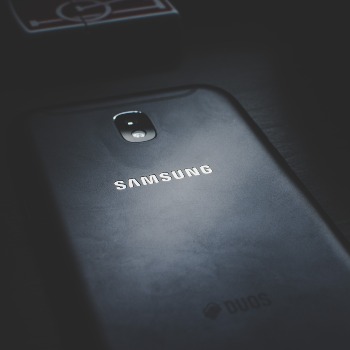Windows 10's Curtain Call: Conquer Tech-Tidy and Keep Your PC Smooth-Sailing (Without E-Waste Drama!)
Remember that trusty Windows 10 companion that's seen you through countless memes, homework marathons, and epic gaming sessions? Well, brace yourself, friend, because its sunset is on the horizon. Microsoft's official support for Windows 10 ends in October 2025, leaving millions wondering: "Upgrade or trash?" Hold on, before you envision your beloved PC joining the graveyard of tech ghosts, let's explore ways to keep it running smoothly and avoid contributing to the ever-growing e-waste mountain. Think of this as your ultimate guide to navigating the Windows 10 farewell without tech meltdowns or environmental guilt.
Why is Windows 10 saying goodbye?
My friend, development is everything. My friend, development is everything. Similar to our mobile devices, operating systems are often upgraded with new features and security fixes. Windows 11, the newest kid on the block, promises enhanced security, quicker processing, and features that will last.. But Microsoft has to say goodbye to its predecessor to concentrate on this next phase completely.. But Microsoft must bid adieu to its predecessor in order to completely concentrate on this next phase.
So, what does this mean for your PC?
Without ongoing support, your Windows 10 buddy will become vulnerable to security threats and miss out on the latest bug fixes and performance improvements. It's like neglecting to update your antivirus – not a recipe for digital serenity!
Upgrade? Recycle? The Tech-Tidy Dilemma:
This is where the real fun (and maybe some stress) begins. You have options, friend!
Upgrade to Windows 11: If your PC meets the system requirements (check here: https://www.microsoft.com/en-us/windows/windows-11-specifications), and you're craving the latest tech bells and whistles, upgrading is the sleekest path. Just be sure your hardware can handle the jump – no point forcing a square peg into a round hole.
Embrace the Upgrade Alternative: Not ready for Windows 11, or your PC throws a hardware tantrum at the mention of it? Don't fret! Consider these options:
- Make the move to Linux: Due to its adaptability and customization, this free and open-source operating system is growing in popularity. Learn a new skill, make friends who share your interests, and give your dependable PC a facelift.
- Continue using Windows 10 (at your own risk): Theoretically, Windows 10 will continue function after October 2025, but expect significant challenges. Security updates will no longer be installed on your computer, leaving it exposed. . Think of it like driving without airbags – not ideal.
Recycle Responsibly: If your PC truly kicks the bucket (RIP) or upgrading isn't feasible, don't just toss it like yesterday's news! Explore responsible recycling options:
- Electronics recycling centers: Find a certified e-waste facility that responsibly disposes of your PC, ensuring its components are reused or recycled properly.
- Manufacturer take-back programs: Many manufacturers offer take-back programs for their products, including PCs. Check their website or contact customer service for details.
Keep Your PC Smooth-Sailing (Without E-Waste Drama):
Regardless of your chosen path, here are some pro tips to keep your PC running smoothly and minimize your e-waste footprint:
- Regular maintenance is key: Delete temporary files, delete unnecessary apps, and make sure your drivers are up to current. Consider it as a digital equivalent of spring cleaning.
- Protect your valuable files with a champion data backup: Your files should be safe from harm no matter what. Make regular backups of your data to the cloud or an external drive.
- Accept software updates (for the most part): Updates for Windows 10 may be coming soon, but other software has to be updated for security and functionality. If your hardware seems dated, proceed with caution when upgrading the operating system.
FAQs:
1. My PC is super old. Can I still upgrade to Windows 11?
Maybe not, friend. Check the system requirements to see if your PC has the muscle to handle the upgrade. If not, explore alternative options like Linux or sticking with Windows 10 (with its inherent security risks).
2. Is Windows 11 free?
No, upgrading to Windows 11 requires a new license unless you already have a digital license for Windows 10 Home or Pro. Weigh the cost against the benefits and alternative options before making a decision.
3. What happens to my files if I upgrade to Windows 11?
Generally, your files should be safe during the upgrade process. However, it's always wise to back up your data beforehand just in case. Microsoft offers a transfer tool to assist with this, but it's never a bad idea to have a personal backup for peace of mind.
4. I'm scared of tech stuff! Can someone help me with the upgrade or recycling process?
Don't worry, friend! Many resources are available to assist you. Here are a few options:
- Microsoft Support: Microsoft offers online guides and troubleshooting resources for both upgrading and recycling your PC. You can also contact their support team directly for personalized assistance.
- Tech-savvy friends or family: Lean on your tech-savvy loved ones for guidance. They might be able to walk you through the process or recommend reliable professionals.
- Local computer repair shops: Many computer repair shops offer data transfer services and can help you choose the best recycling options for your specific needs.
5. What are some ways to reduce e-waste beyond just recycling my PC?
Great question! Here are a few ways to be more mindful of your tech footprint:
- Extend the life of your current PC: By practicing regular maintenance and avoiding unnecessary upgrades, you can keep your PC running for years to come. This reduces the need for replacements and minimizes e-waste.
- Buy used or refurbished electronics: Consider purchasing used or refurbished computers instead of brand new ones. This can be a budget-friendly option and helps reduce the demand for new devices, ultimately leading to less e-waste.
- Support sustainable tech companies: Look for companies that prioritize sustainability in their manufacturing and recycling practices. Choosing these brands helps promote responsible tech development and reduces the overall environmental impact of the industry.
Remember, navigating the Windows 10 farewell doesn't have to be a tech-filled nightmare. By understanding your options, prioritizing responsible practices, and seeking help when needed, you can keep your PC running smoothly, minimize your e-waste footprint, and even embrace the exciting possibilities of the future!
Stay tuned to my blog for more information on windows support, tech-related posts, technology news, and tips and tricks on how to write a successful blog post to increase traffic and get more attendance with AI. Don't forget to share this article with your friends if you found it helpful!
Let's fight e-waste together! Share this article with your friends and family to spread the word about responsible tech practices.



